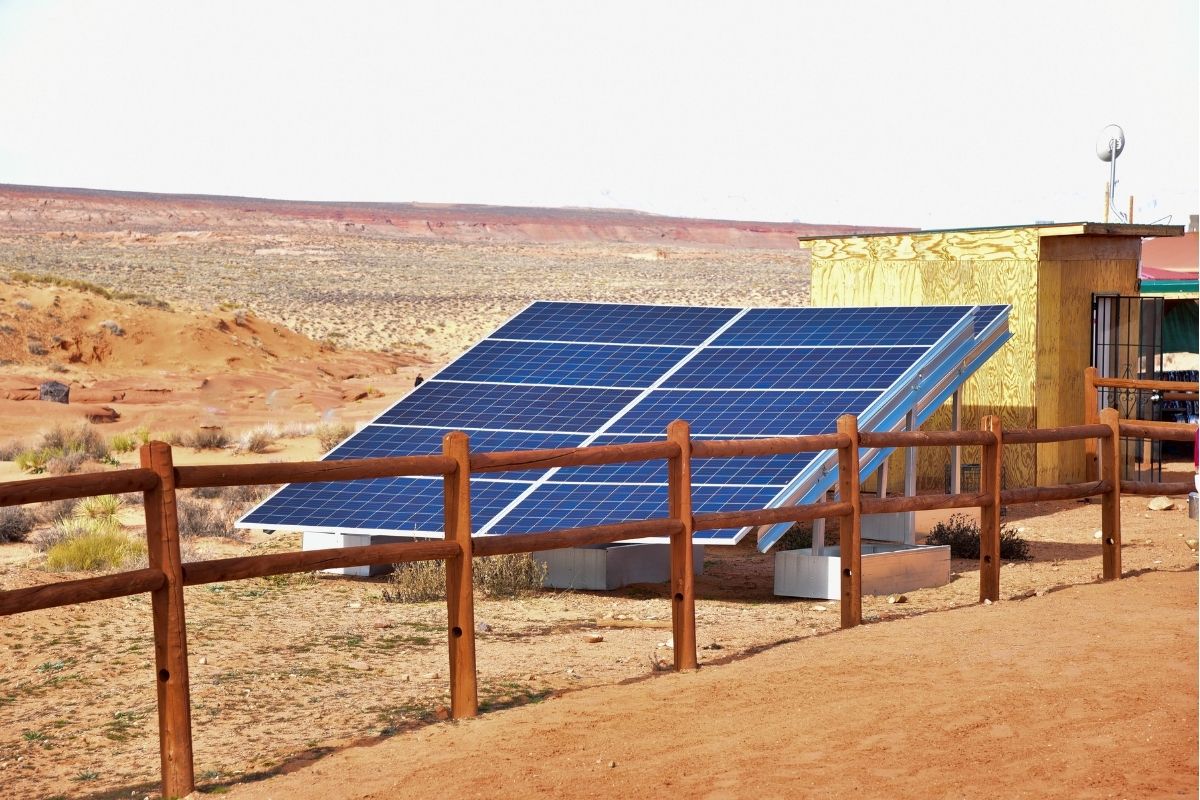Off-Grid Solar Systems: Grounding

Did you know that there are over 420 million off-grid solar panel users as of 2020? But why is the solar sector rapidly developing over the past decade? Grounding off-grid solar systems are very crucial for various reasons.
Grounding your PV installations can help prevent fires and unintentional shocks. It also ensures voltage transients.
In this article, we will talk about grounding and its importance for off-grid solar systems.
What is Grounding?
Grounding your solar systems is crucial, especially if you live in an area that experiences lightning storms. There are two main types of grounding; chassis, or otherwise known as mechanical and electrical. These two types of grounding are different from each other and thus must be understood properly.
Chassis Ground
In this type of grounding, all the metallic objects that do not carry current are bonded together and then to the earth. These metallic objects include the solar module frame, the backplate, the battery enclosure, array mounting structure, among many others.
This type of grounding is done primarily for safety reasons. Doing chassis grounding prevents potential build-up on a metal object that may cause a shock during contact. Since the voltage is only the potential difference between some potential and ground potential, it is recommendable to do a mechanical ground or chassis ground on the system. This will help get rid of the difference.
The video below explains, why earth grounding is a must.
Electrical Ground
This type of grounding happens when any conductors that carry current are connected to the grounding system and then to the actual earth. Grounding the electrical system is vital not only for safety but also for electrical transient purposes.
Experts highly recommend connecting one conductor that carries current as close as possible to the battery in battery systems. This is because the battery is the largest DC source of power.
An In-Depth Look Into Electrical Grounds for Off-Grid Solar Systems
Here is additional information on electrical grounds and their benefit.
Load Requirements and Electrical Grounds
Electrical grounds are essential for load requirements. For some loads, like the cathodic protection systems, this is pretty obvious since a reverse process via impress current is used to overpower the pipeline’s naturally occurring ground.
For this reverse process, an electrical ground is required. This is also to increase the life of the system. Should there be excess earth voltage on the pipeline, the pipe coatings may suffer irreparable damages. Understanding the nature of electrical ground can go a long way.
Charge Controllers and Electrical Grounds
Many electrical devices and charge controllers in off-grid systems with transient protection need a grounded conductor to function properly. Put, for the system to work properly, both lines must be connected properly. In case of over-voltage incidents caused by a natural external factor such as lightning, surge arrestors are there to protect the system.
Most surge arrestors use a grounded conductor to help shut or divert the transient. Take note that most of the controllers with grounded conductors are labeled either positive or negative ground.
Mobile Systems and Electrical Grounds
For mobile systems, you can use circuit breakers, fuses, and switches with electrical grounds. More often than not, you need a floating ground in both mobile systems and off-shore platforms. This is because of the nature of the system’s requirements.
Experts still advise that mobile applications should have a common conductor or grounded conductor connected to the actual earth. Because of this reason, the chassis of cars and other vehicles are commonly used as an electrical ground. However, this is not as effective as using the actual earth as the ground. Even so, it still provides a certain degree of safety.
Conclusion
If you want to ground your solar systems, you need to know the difference between chassis and electrical grounds. We hope that this article has given you some insight and knowledge about grounding in off-grid solar systems.
Leave a Reply